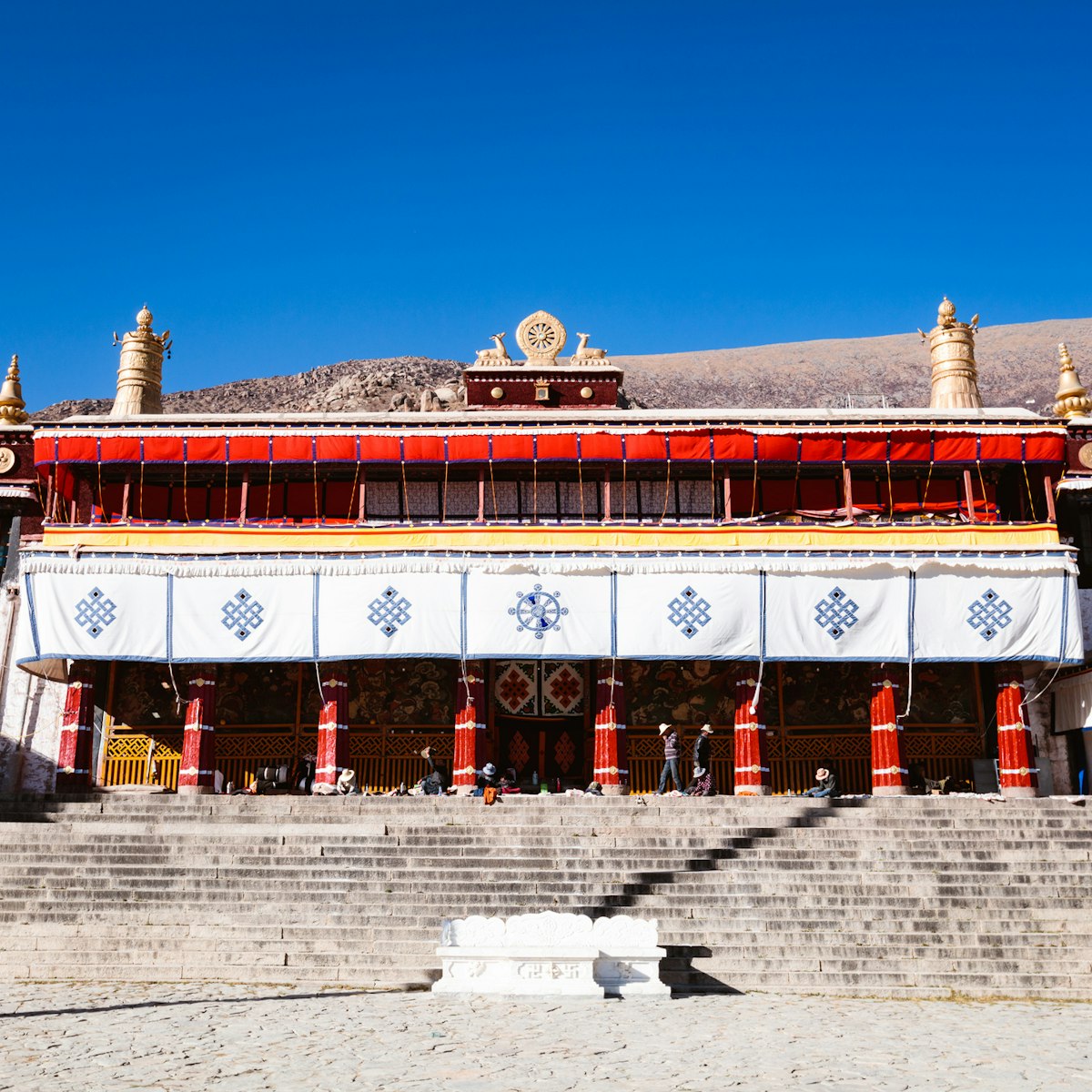Ruins dwarf the rebuilding work at Nalendra, but it's still an impressive monastery. Founded in 1435 by the lama Rongtonpa (1367–1449), a contemporary of Tsongkhapa, it was largely destroyed in 1959. Where there were once 4000 monks now only 30 remain, though around 110 more live in seclusion in the nearby mountains.
Nalendra is 12km west of Lhundrub county town.
As you enter Nalendra's main building, the impressive gönkhang (protector chapel; women cannot enter) has a central Gompo Gur, a form of Mahakala and protector of the Sakyapa school, as well as statues of Pehar (on an elephant) and Namse (Vairocana, on a snow lion), both in the left corner. Look for the three huge wild yak heads and the stuffed mountain goat, in varying states of decay.
The main hall has a statue of Rongtonpa in a glass case, while the inner sanctum features Rongtonpa in the front centre, flanked by two Sakyapa lamas. The same room contains the silver funeral stupa of Khenpo Tsultrim Gyeltsen, who is credited with rebuilding Nalendra after its destruction during the Cultural Revolution.
The chapel to the left contains hundreds of statues of Buddha Sakyamuni, which pilgrims crawl under to receive a blessing. In the centre is an unusual statue of Nampar Namse (Vairocana) with four faces.
Other chapels worth checking include the Tsar Kangtsang, under renovation at research time, the shedra (monastic college), the Jampa Kangtsang (with its interesting statue of skeletons in a yabyum pose), and the ruins of the dzong outside the monastery gate to the west.
You can get a great overview of the monastery from ascending to the top of the white chörten just below the monastery's main buildings. To get an idea of the original layout, look closely at the mural on the immediate left as you enter the main assembly hall of the monastery.



